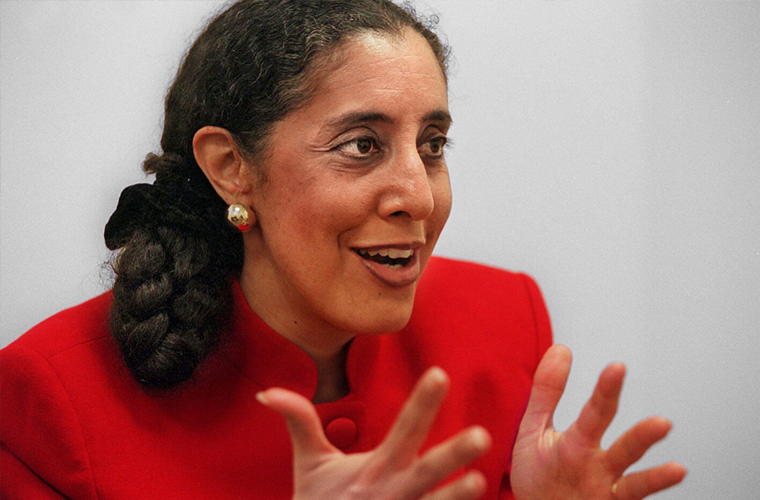Lani Guinier, a renowned legal scholar and civil rights activist, has made significant contributions to the fields of law and social justice. Throughout her career, Guinier has challenged conventional notions of equality and fairness, advocating for more inclusive and democratic systems. Her work has had a profound impact on the legal profession and has inspired countless individuals to pursue a more equitable society.
Born in New York City in 1950, Guinier grew up in a politically engaged household. Her father, Ewart Guinier, was a prominent civil rights attorney who fought for racial equality in education. This early exposure to activism and the law shaped Guinier’s worldview and set her on a path toward a career in law. Guinier’s academic journey began at Radcliffe College, where she graduated magna cum laude in 1971. She then attended Yale Law School, where she was one of only a few women in her class. Despite facing gender and racial discrimination, Guinier excelled academically and graduated as a member of the prestigious Yale Law Journal.
After completing her legal education, Guinier embarked on a career that would blend scholarship and activism. She joined the faculty at Harvard Law School in 1978, becoming the first black woman to receive tenure at the institution. During her time at Harvard, Guinier focused her research on voting rights and electoral systems, exploring ways to increase representation for marginalized communities.



One of Guinier’s most influential works is her book “The Tyranny of the Majority: Fundamental Fairness in Representative Democracy.” In this seminal work, Guinier challenges the traditional understanding of majority rule and argues for alternative methods of decision-making that prioritize inclusivity and minority voices. Her ideas sparked widespread debate and reshaped the discourse on democracy and equality.
In 1993, President Bill Clinton nominated Guinier for the position of Assistant Attorney General for Civil Rights. However, her nomination faced significant opposition from conservative lawmakers who mischaracterized her positions as advocating for “racial quotas.” Despite Clinton’s initial support, he ultimately withdrew her nomination due to political pressure.
Although her nomination was unsuccessful, Guinier’s ideas continued to resonate with scholars and activists alike. She went on to publish numerous articles and books, further developing her theories on democratic governance and social justice. Guinier’s work has been instrumental in shaping the understanding of fairness and equality in legal scholarship.
In addition to her academic contributions, Guinier has also been actively involved in civil rights advocacy. She has served as an advisor to various organizations, including the NAACP Legal Defense Fund and the American Civil Liberties Union. Guinier’s commitment to social justice extends beyond academia, as she continues to fight for equality and representation in all aspects of society.
Today, Lani Guinier remains a highly respected figure in the legal community. Her groundbreaking research and advocacy have paved the way for a more inclusive understanding of democracy and fairness. Through her work, Guinier has challenged the status quo and inspired generations of scholars and activists to strive for a more equitable society.
In conclusion, Lani Guinier’s contributions to civil rights and legal scholarship have been nothing short of transformative. Her ideas have challenged conventional wisdom and sparked important conversations about democracy, representation, and fairness. As we continue to grapple with issues of inequality and social justice, Guinier’s work serves as a guiding light, reminding us of the power of inclusivity and the importance of amplifying marginalized voices. She passed away on January 7, 2022, in Cambridge, Massachusetts

